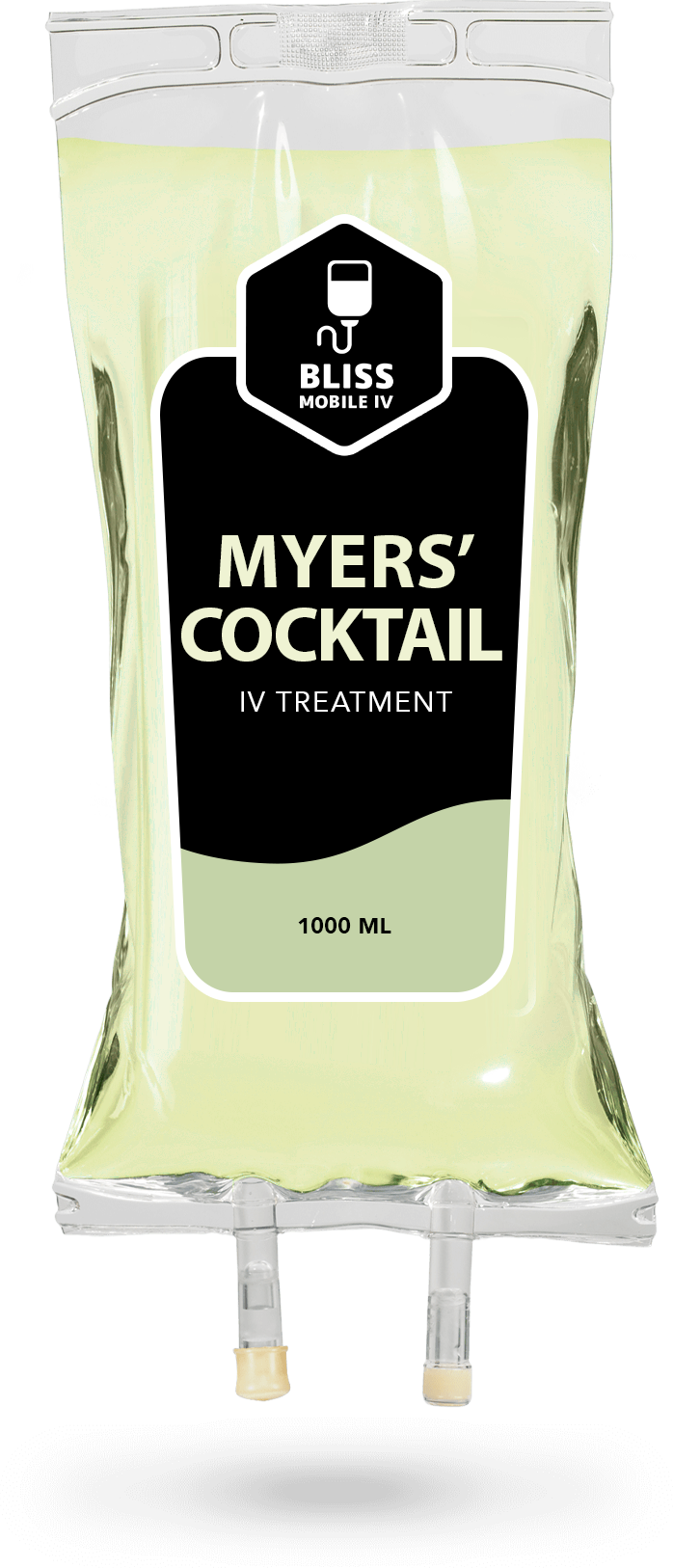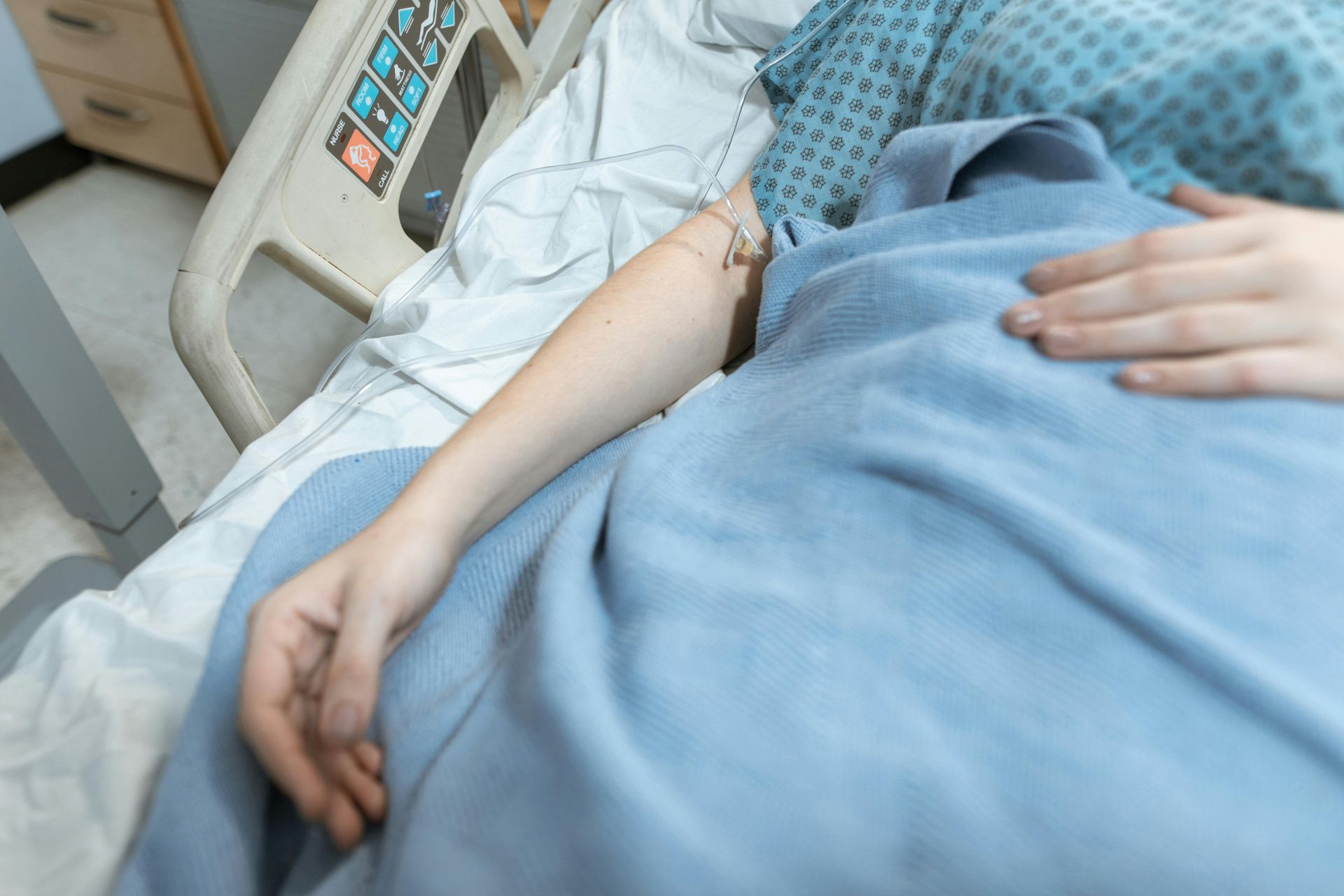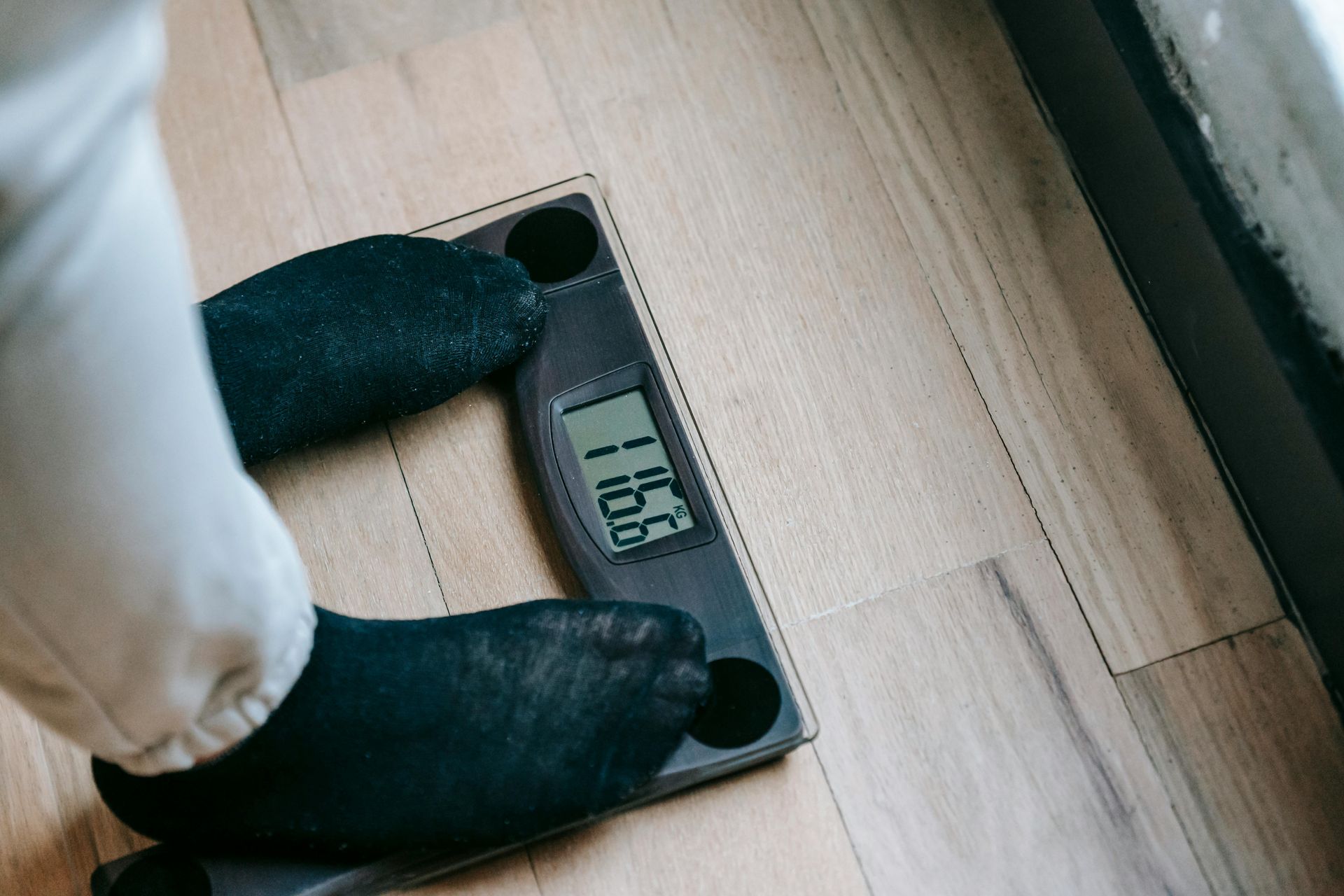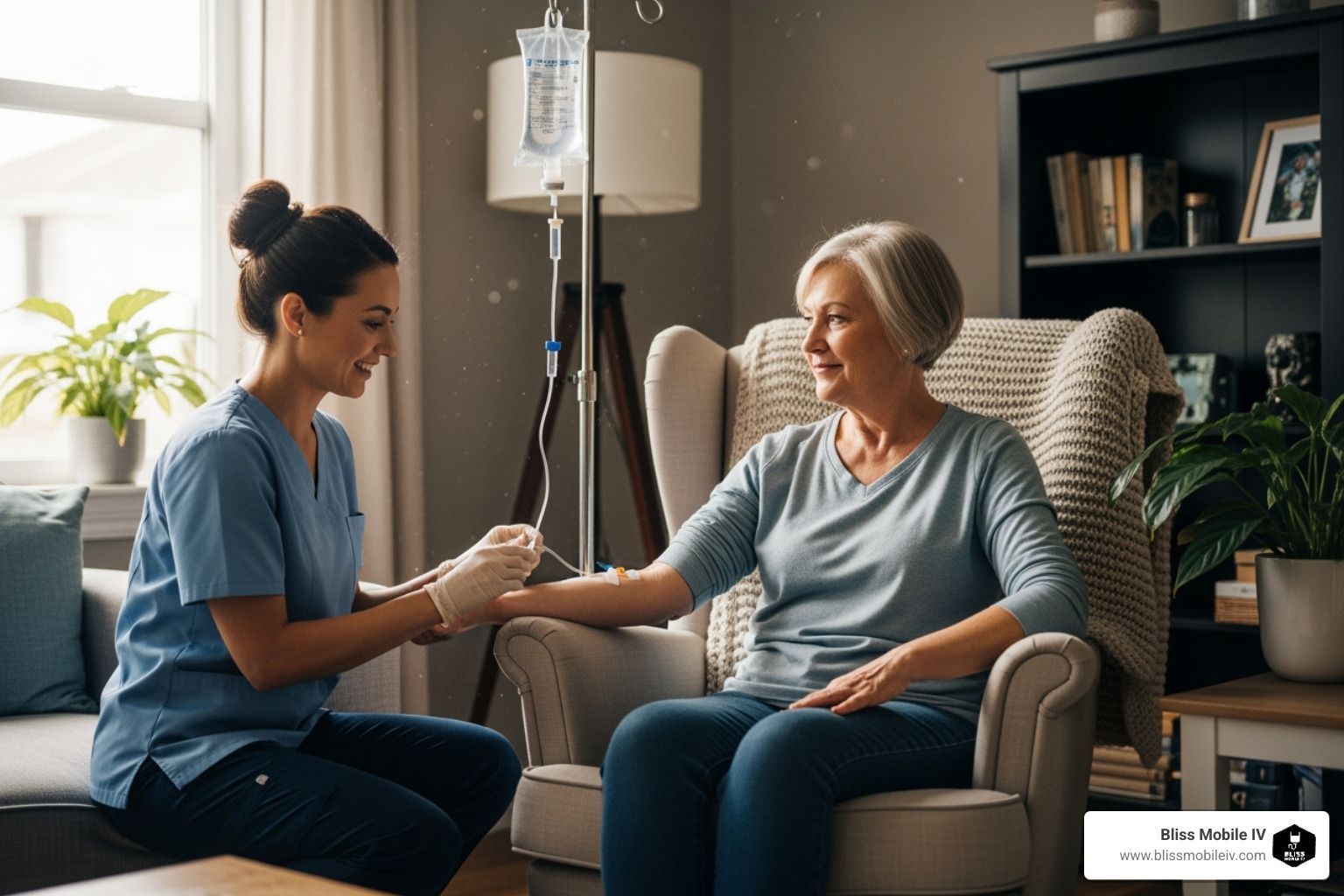IV Drips and Hangovers: The Truth Behind the Trend
The Rise of Hangover IV Therapy: Separating Hype from Help

IV hydration for hangover relief has exploded from a niche medical treatment into a mainstream wellness trend. Mobile IV services now promise to cure your worst morning-after misery with a simple drip delivered right to your door.
Quick Answer: Does IV Hydration Work for Hangovers?
- Mechanism: Delivers fluids, electrolytes, and vitamins directly into bloodstream
- Speed: Relief typically begins within 15-60 minutes
- Cost: $100-$400 per session (not covered by insurance)
- Effectiveness: May help with dehydration symptoms but isn't a cure-all
- Safety: Generally safe when administered by licensed professionals
- Evidence: Limited clinical studies; mostly anecdotal reports
The hangover IV industry has grown rapidly as people seek faster relief than traditional remedies offer. As one Las Vegas clinic founder noted, "There has never been a quick fix for a hangover, just like there's no magic pill for weight loss. But what if there was one?"
The reality is more nuanced. While IV therapy can rapidly address dehydration - one major component of hangovers - it doesn't speed up your liver's processing of alcohol or eliminate all hangover symptoms.
The trend reflects our growing impatience with feeling awful and willingness to pay premium prices for convenience. IV lounges and mobile services have made the treatment accessible, but the science behind hangover relief remains complex.
Key factors driving the trend:
- Faster relief than oral hydration (bypasses digestive system)
- Customizable vitamin and medication add-ons
- Mobile services eliminate travel when you feel terrible
- Social media buzz around "wellness optimization"
Understanding what IV hydration can and can't do helps you make informed decisions about this increasingly popular - but expensive - hangover remedy.

Why Hangovers Hurt: The Science You Feel
Ever wondered why that one extra drink leaves you feeling like you've been hit by a truck? Your hangover isn't just karma for poor decision-making - it's actually your body staging a full-scale revolt against the toxic aftermath of alcohol.
Understanding the science behind your misery helps explain why IV hydration for hangover relief can tackle some symptoms brilliantly while leaving others untouched.
The real culprit isn't alcohol itself- it's what happens after your liver gets to work. When your body breaks down alcohol, it creates acetaldehyde, a toxic compound that's actually more harmful than the original alcohol. This nasty byproduct triggers nausea, pounding headaches, and that unmistakable feeling that you've made some questionable life choices.
Your liver works frantically to convert acetaldehyde into harmless acetate, but this process takes time. Meanwhile, your immune system releases cytokines- inflammatory proteins that cause muscle aches, fatigue, and brain fog.
Then there's the dehydration disaster. Alcohol acts like a sneaky diuretic, suppressing your antidiuretic hormone and telling your kidneys to flush out way more water than you're taking in. You're not just losing fluids - you're hemorrhaging critical electrolytes like sodium, potassium, and magnesium.
This electrolyte chaos is where IV hydration really shines. While oral rehydration has to steer your cranky digestive system, IV therapy delivers fluids and electrolytes directly into your bloodstream, bypassing the whole mess.
The Dehydration Domino Effect
Dehydration from alcohol isn't just about losing water - it's a cascade of physiological disruptions that create the perfect storm for misery. When alcohol suppresses your antidiuretic hormone (ADH), your kidneys lose their ability to concentrate urine effectively. This means you're not just urinating more frequently; you're losing proportionally more water with each trip to the bathroom.
The electrolyte imbalance compounds the problem. Sodium helps regulate fluid balance between cells, while potassium maintains proper muscle and nerve function. When these get depleted, your cells can't maintain proper hydration even when water is available. This is why drinking plain water during a hangover sometimes feels ineffective - you need the electrolytes to help your body actually use that water.
Magnesium depletion deserves special attention because it affects over 300 enzymatic reactions in your body. Low magnesium contributes to muscle tension, headaches, and that jittery, anxious feeling many people experience during hangovers. Traditional oral magnesium supplements can take hours to absorb and may cause digestive upset when your stomach is already rebellious.
Blood Sugar Rollercoaster
Alcohol wreaks havoc on your blood sugar regulation, creating another layer of hangover misery that IV hydration for hangover treatments can help address. Initially, alcohol can cause blood sugar spikes, especially when mixed with sugary drinks. But as your liver prioritizes alcohol metabolism over glucose production, blood sugar levels can plummet.
This hypoglycemic state contributes to shakiness, weakness, mood swings, and intense cravings for greasy or sugary foods. Your brain, which relies heavily on glucose for fuel, sends urgent hunger signals that often manifest as desperate 3 AM fast-food runs.
Many IV formulations include dextrose(medical-grade glucose) to help stabilize blood sugar levels quickly. This can provide almost immediate relief from the shaky, weak feeling that makes hangovers so debilitating.
From Last Call to "Never Again": Timeline of Symptoms
The cruel irony of hangovers is their timing. You might feel relatively fine stumbling into bed, only to wake up feeling like death warmed over.
When your BAC starts dropping(usually 1-3 hours after your last drink), dehydration begins setting in and your blood sugar starts its rollercoaster ride. This is actually when your body begins the recovery process, but the initial stages feel worse before they feel better.
The real nightmare begins 4-8 hours later when your BAC approaches zero. This is when acetaldehyde levels peak, inflammation reaches its crescendo, and dehydration hits maximum intensity. Your headache spikes to migraine levels, nausea makes even water seem unappealing, and GI upset joins the party as your digestive system rebels.
Sleep disruption amplifies everything. Alcohol might help you fall asleep initially, but it severely disrupts REM sleep and causes frequent awakenings. Poor sleep quality means your body's natural recovery processes are compromised right when you need them most.
Most people experience peak hangover symptoms 12-16 hours after drinking stops. Understanding this timeline helps you plan your recovery strategy - IV hydration for hangover relief works best during those peak symptom hours when your body desperately needs rapid rehydration and nutrient replenishment.
What Is IV Hydration Therapy?
Think of IV hydration therapy as a direct highway to your bloodstream, bypassing the slow, winding roads of your digestive system. Originally developed for hospitals to treat severe dehydration, this treatment has found new life in the wellness world - especially for hangover relief.
The process is straightforward. A trained professional inserts a small catheter into your vein and connects it to a bag of sterile fluid. From there, a carefully formulated solution drips directly into your bloodstream at a controlled rate.

The foundation starts with the base solution- either normal saline(0.9% sodium chloride) or Lactated Ringer's solution(containing sodium, potassium, calcium, and chloride).
The magic happens because you're bypassing your digestive system entirely. When dealing with a hangover, your stomach often rebels against anything you try to consume. With IV therapy, you get 100% absorption directly into your bloodstream- no waiting, no nausea-induced setbacks.
IV Hydration for Hangover: Core Ingredients & Add-Ons
Most hangover IV treatments include: 500-1000 milliliters of base fluid plus B-complex vitamins(B1, B2, B3, B5, B6, B12) that alcohol rapidly depletes. Vitamin C gets added at therapeutic doses of 1000-2000mg - far more than you could comfortably take orally. Magnesium helps relax tense muscles and ease headaches.
For serious nausea, providers often add ondansetron (Zofran). If inflammation and pain are your main complaints, ketorolac (Toradol) provides powerful anti-inflammatory relief.
The famous "banana bag" gets its nickname from the bright yellow color B vitamins create when mixed together. Popular add-ons include glutathione(your body's master antioxidant), taurine for cardiovascular support, and zinc for immune function.
More info about add-on boosters can help you understand which combinations work best for your specific needs.
How the Drip Works Inside Your Body
Once the IV starts flowing, your body responds almost immediately. In the first 5 minutes, rapid plasma expansion increases blood volume and improves circulation. Between 5-15 minutes, electrolyte rebalancing begins - often when headaches start easing. Around 15-30 minutes, vitamins reach therapeutic levels. By 30-60 minutes, toxin dilution is in full effect.
Many people report feeling noticeably better within 15-30 minutes, though full sessions typically take 30-60 minutes to complete.

Does IV Hydration for Hangover Really Work?
IV hydration for hangover relief can absolutely help with certain symptoms, but it's not the magical cure-all some might claim.
What IV Therapy Excels At: Dehydration and electrolyte imbalances get rapid relief through direct bloodstream delivery. The vitamin boost provides noticeable energy improvements at therapeutic levels impossible to achieve orally. Anti-nausea medications like ondansetron can be game-changers when delivered intravenously.
What IV Therapy Can't Do: It cannot speed up your liver's processing of alcohol or acetaldehyde. Your liver works at its own pace, breaking down about one standard drink per hour regardless of IV treatment. It also can't instantly reverse the inflammatory response causing many hangover symptoms.
The Science Behind Rapid Relief
When you're dealing with a hangover, your digestive system is often in full rebellion mode. Nausea, stomach irritation, and delayed gastric emptying mean that oral rehydration can take hours to provide meaningful relief - if it stays down at all.
IV delivery changes the game completely. Fluids and nutrients enter your bloodstream within seconds, bypassing the digestive chaos entirely. This direct delivery means you get 100% bioavailability of everything in the IV bag, compared to the 50-70% absorption rate of oral supplements under the best circumstances.
The rapid plasma volume expansion that occurs with IV fluids helps restore normal blood pressure and circulation almost immediately. Many people report that their pounding headache begins to ease within the first 10-15 minutes of treatment as improved circulation delivers oxygen more effectively to the brain.
How Quickly Does IV Hydration Provide Relief?
Most people start feeling better within 15 to 60 minutes of starting their IV drip. Sessions typically last 30-45 minutes, with relief following a predictable pattern: headaches ease first as blood volume increases, then energy improves as B vitamins kick in, finally nausea subsides as medications take effect.
This speed advantage over oral rehydration is significant. IV delivery ensures 100% absorption at the rate your body can handle, while oral fluids might take 2-4 hours for meaningful relief.
The timeline typically looks like this:
- 0-5 minutes: Initial fluid expansion begins
- 5-15 minutes: Headache relief as circulation improves
- 15-30 minutes: Energy boost from B vitamins becomes noticeable
- 30-45 minutes: Nausea subsides, overall well-being improves
- 45-60 minutes: Peak effects achieved
Real-World Effectiveness: What Patients Report
While controlled studies are limited, patient satisfaction surveys from IV therapy clinics consistently show high success rates. Most facilities report that 85-95% of hangover patients experience significant symptom improvement.
Common improvements include:
- Headache reduction from severe to mild or gone entirely
- Nausea relief allowing normal food and fluid intake
- Energy restoration enabling normal daily activities
- Mental clarity improvement reducing brain fog
- Mood improvement as physical symptoms resolve
However, realistic expectations matter. Patients who expect to feel 100% normal immediately after severe alcohol overconsumption may be disappointed. IV therapy typically brings you from "completely miserable" to "functional and improving" rather than erasing all consequences of excessive drinking.
Is IV Hydration Better Than Oral Rehydration?
Speed and Effectiveness: IV therapy wins for rapid relief. Nausea Tolerance: Bypassing the digestive system is invaluable when your stomach rejects everything. Electrolyte Content: Medical-grade solutions are superior to sports drinks loaded with sugar.
Cost Consideration: A single IV session costs $159-$400, while sports drinks cost under $10. Convenience: Mobile services bring treatment to you, though oral solutions are available 24/7.
The oral rehydration challenge during hangovers can't be overstated. Even when you know you need fluids, nausea and stomach irritation make it difficult to consume adequate amounts. Many people find themselves in a frustrating cycle: they need fluids to feel better, but feeling awful makes it hard to keep fluids down.
IV therapy breaks this cycle by delivering everything your body needs without requiring any cooperation from your digestive system. This is particularly valuable for people who experience severe nausea or vomiting with hangovers.
What the Research Says
The scientific evidence specifically supporting IV hydration for hangover relief is surprisingly thin. A 2013 randomized controlled trial found IV fluids didn't significantly speed recovery in intoxicated emergency patients, though these studies focused on severe intoxication rather than hangover symptom relief.
Small clinic studies report impressive results, with some facilities claiming 97% patient improvement. However, these lack rigorous controls and don't account for placebo effects. Large-scale, controlled studies specifically examining IV therapy for hangover symptoms don't exist yet.
The research gap exists for several reasons:
- Ethical concerns about studying hangover treatments
- Difficulty standardizing alcohol consumption for research
- Individual variation in hangover severity and symptoms
- Challenge of creating proper placebo controls for IV therapy
What we do know from related research:
- IV rehydration is highly effective for dehydration from any cause
- B-vitamin deficiency contributes to hangover symptoms
- Electrolyte imbalances worsen hangover severity
- Anti-nausea medications work effectively when delivered intravenously
The bottom line? IV hydration for hangover relief appears to help many people feel better faster, particularly for dehydration-related symptoms, though scientific validation remains limited. The treatment addresses known physiological problems caused by alcohol consumption, even if we don't have gold-standard studies proving its effectiveness specifically for hangovers.
Safety, Eligibility & Costs: What to Know Before You Book
Before booking IV hydration for hangover treatment, understand that while generally safe when administered by licensed professionals, it's still a medical procedure with considerations.
Understanding the Risks: Infection risk is minimal with proper sterile technique. Fluid overload is rare but possible, especially concerning for those with heart or kidney problems. Allergic reactions to additives can occur, which is why screening matters. Injection site issues like bruising are the most common, usually minor side effects.

The Price Reality: Basic hangover IV packages run $159-$299, while premium packages cost $299-$400+. Mobile service adds additional premiums. Insurance won't cover this "elective treatment."
Who Should Skip the Drip?
Absolute contraindications include severe heart failure and end-stage kidney disease. Proceed with caution if you're pregnant/breastfeeding, taking blood thinners, have liver disease, diabetes, high blood pressure, or recent surgery. Most services require patients to be 18+ years old.
The Patient Experience
Before treatment: 5-10 minutes of health screening, vital signs check, and consent process. During treatment: 30-60 minutes of monitored infusion - surprisingly relaxing. After treatment: Quick IV removal, final vital signs check, and aftercare instructions.
When choosing providers, look for licensed healthcare professionals, proper insurance coverage, and transparent pricing. For additional context about medical hydration options, walk-in urgent care hydration facts provides helpful information.
Beyond the Bag: Alternatives & Prevention
While IV hydration for hangover relief works well, smart alternatives and prevention can save money and suffering.
Immediate Relief Options: Oral rehydration salts deliver medical-grade electrolytes similar to IV treatment. NSAIDs like ibuprofen target hangover's inflammatory response effectively. Don't underestimate rest and sleep- your body heals best when horizontal.
Prevention Strategies: Pace drinks at one per hour. Clear liquors contain fewer congeners than whiskey or red wine. The water-between-drinks rule maintains hydration throughout the night. Eating before drinking slows alcohol absorption. B-complex vitamins before drinking can pre-load your system.
Advanced Prevention Strategies
Pre-drinking preparation can dramatically reduce hangover severity. Taking a B-complex vitamin 2-3 hours before drinking helps ensure your body has adequate cofactors for alcohol metabolism. Milk thistle supplements may support liver function, though evidence is mixed.
The food foundation matters more than most people realize. Eating a substantial meal containing healthy fats, complex carbohydrates, and protein before drinking slows alcohol absorption and provides sustained energy. Foods rich in cysteine(eggs, chicken, oats) may help your body produce glutathione, a crucial antioxidant for processing alcohol.
Strategic drink selection can minimize hangover risk. Vodka and gin contain fewer congeners (toxic byproducts of fermentation) than whiskey, rum, or red wine. Avoiding dark liquors and cheap alcohol reduces your toxic load. Mixing with water or club soda instead of sugary mixers prevents blood sugar spikes and crashes.
Hydration timing is crucial. Drinking 16-20 ounces of water before going out, alternating alcoholic drinks with water, and consuming another 16-20 ounces before bed can prevent severe dehydration. Adding a pinch of sea salt and lemon to your water provides natural electrolytes.
Can Supplements Replace an IV?
Supplements help but play in a different league than IV therapy for speed. B-complex vitamins are your best oral bet, though digestive absorption is only 50-70% versus IV's 100%. Magnesium tackles headaches effectively, especially glycinate forms. Vitamin C supports liver antioxidant defenses but high oral doses might irritate your stomach.
Supplements work great for prevention and mild symptoms, but can't match IV therapy's rapid relief during severe hangovers.
The supplement strategy works best when started before symptoms become severe. N-acetylcysteine (NAC) taken before drinking may help your body produce glutathione more effectively. Alpha-lipoic acid supports liver detoxification pathways. Electrolyte powders without artificial colors and excessive sugar can provide better rehydration than sports drinks.
Timing matters with oral supplements. Taking them when you're already nauseous and vomiting is often futile. The key is either prevention (taking them before drinking) or early intervention (taking them as soon as you wake up, before symptoms peak).
Natural Remedies That Actually Work
Ginger has solid scientific backing for nausea relief and can be consumed as tea, capsules, or even raw. Peppermint tea soothes digestive upset and provides gentle hydration. Coconut water offers natural electrolytes without artificial additives, though it's lower in sodium than medical rehydration solutions.
Bone broth provides electrolytes, amino acids, and easy-to-digest nutrients when solid food seems impossible. The warm liquid is soothing, and the sodium content helps with rehydration.
Cold therapy can provide surprising relief. Ice packs on the forehead and back of the neck help with headaches, while cold showers (if you can tolerate them) may boost circulation and alertness.
The Recovery Environment
Creating the right recovery environment accelerates healing. Darkness helps with light sensitivity and supports natural melatonin production. Cool temperatures(65-68°F) are more comfortable when you're dealing with nausea and sweating. Fresh air circulation prevents stuffiness that can worsen nausea.
Sound management is crucial - even normal household noises can feel overwhelming during a hangover. White noise or earplugs can provide relief. Comfortable positioning with extra pillows to lift your head slightly can reduce nausea and improve circulation.
Long-Term Wellness Strategies
Daily hydration habits set the foundation - drink half your body weight in ounces daily. Support your liver with leafy greens, berries, and nuts. Regular exercise improves alcohol processing, while quality sleep gives recovery systems needed downtime. Stress management reduces overall inflammation, making you more resilient.
Building alcohol tolerance safely isn't about drinking more - it's about supporting your body's natural detoxification systems. Regular exercise improves circulation and liver function. Adequate sleep(7-9 hours nightly) ensures your body can recover effectively. Stress reduction through meditation, yoga, or other practices reduces baseline inflammation.
Liver support foods include cruciferous vegetables (broccoli, Brussels sprouts, cauliflower), which contain compounds that support detoxification enzymes. Antioxidant-rich foods like berries, dark leafy greens, and green tea help combat oxidative stress from alcohol metabolism.
The goal isn't becoming a teetotaler - it's drinking smarter so you can enjoy yourself without brutal next-day consequences. IV hydration for hangover relief can be part of this strategy, but it works best when combined with prevention and overall wellness practices.
Frequently Asked Questions
Does insurance ever cover hangover IV therapy?
Unfortunately, insurance won't cover IV hydration for hangover treatment. It falls into "elective wellness," viewed like cosmetic procedures - nice to have but not medically necessary. Rare exceptions exist for emergency room treatment of dangerous alcohol-related dehydration, but routine hangover relief remains cash-pay.
How often can I safely get an IV drip?
For healthy adults, once or twice monthly is generally safe. Weekly IVs push into territory needing medical supervision due to potential vein scarring. Daily use isn't recommended - it can disrupt natural hydration mechanisms and create psychological dependency. If you want IVs more than twice monthly, consider examining drinking patterns and overall health habits.
Can I customize the cocktail for allergies or restrictions?
Absolutely! Reputable providers customize treatments by removing specific vitamins for sensitivities, adjusting saline concentrations, or excluding interacting medications. Common customizations address B-vitamin reactions, medication allergies, preservative sensitivities, and latex allergies. Be completely honest about medical history and past reactions - providers prefer customizing treatments over managing allergic reactions.
Conclusion
IV hydration for hangover relief sits at an interesting crossroads where medical delivery meets our desire to feel better, faster. While not a magic bullet erasing all consequences of excessive drinking, it absolutely delivers on rapid rehydration and symptom relief.
What we know: IV hydration excels at addressing dehydration and electrolyte imbalances - major hangover contributors. When you can't keep fluids down, bypassing your digestive system makes perfect sense. Most people feel noticeably better within 15-30 minutes.
What remains unclear: Limited research specific to hangover treatment means we rely on personal experiences rather than gold-standard studies. Your liver still processes acetaldehyde at its own pace, regardless of premium vitamin cocktails.
The safety profile gives little cause for concern with licensed providers. The bigger question is whether convenience and speed justify spending $159-$400 per session.
What makes sense: If you're dealing with severe dehydration, have important commitments, or have budget for premium convenience, IV therapy can be genuinely helpful - especially when nausea makes oral rehydration nearly impossible.
What doesn't make sense: Viewing it as a free pass for excessive drinking or replacement for basic self-care. The most effective hangover cure remains drinking responsibly in the first place.
For Utah residents, mobile services offering on-site relief eliminate travel when you're barely functional. Bliss Mobile IV exemplifies this approach, providing professional treatment directly to your door without hidden fees when you're most vulnerable.
Similarly, those visiting Nevada can benefit from IV therapy las vegas in room , which offers convenient, hotel-based treatment for hangovers and other dehydration-related conditions.
More info about IV Therapy for Hangovers can help you determine if this option fits your situation and budget.
The real takeaway: IV hydration for hangover relief works best as one tool in a larger wellness toolkit. Combined with prevention strategies, responsible drinking habits, and general health maintenance, you've got a comprehensive approach that makes sense.
Whether you choose IV therapy, traditional remedies, or focus on prevention, the goal remains feeling human again as quickly and safely as possible.









